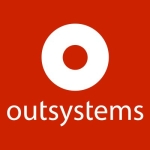What is our primary use case?
We use it as a service desk solution, for ticketing.
How has it helped my organization?
First of all, we had several tasks that were performed manually by the service desk and infrastructure teams, but now we have been able to automate those processes and reduce the manual intervention. For example, when an employee from one of those teams goes on vacation, we can block the account and, when he comes back, we can unblock access and reset the password, and everything is done automatically.
What is most valuable?
The most valuable feature is the flexibility of development for customization.
For example, we are starting now to expand the tool for HR and some other departments. They need applications or processes to improve their tasks. For instance, right now we are discussing, with the Internal Risk team, creation of an application inside ServiceNow so they can open a ticket and follow all the steps according to their process. One of the nice things about ServiceNow is that, if you have your process, you can design the ticket and the form according to your process. That is very useful and can be done quickly.
What needs improvement?
There's one that I would like to see improved to reduce the cost of our ServiceNow, related to the resetting and unblocking of passwords for users who forget their passwords. We had a conversation about this with ServiceNow. We don't have a huge amount of password reset requests, but the minimum package of resets that ServiceNow offers is much more than we need. In conversations with other companies that have a similar profile to ours, they complained about the same thing: "Why should I have to buy a minimum number of password resets, when that amount is much more than I need?" They should have some kind of scaling of the reset package, like zero to 100, 101 to 300, etc. That would be a little bit more useful for us. That package is very expensive. It's more expensive than if I were to have someone in-house who was dedicated to doing those tasks.
For how long have I used the solution?
Less than one year.
What do I think about the stability of the solution?
It's a very stable product, it has a very good SLA and RTO. So far, so good, and I expect it will continue like that.
What do I think about the scalability of the solution?
I haven't had any issues with scalability so far, but we're a medium-small company with about 300 users. The most active users are the service desk, infra, and development teams. Overall, we have 50 or 60 heavy users.
How are customer service and technical support?
Here in Brazil, we have local support from a company called Fast Lane. They are the enterprise that did the development and implementation of the solution in our company. We don't have any issues with them. They are very fast and very helpful. They help us with the design of our processes and the tools.
Which solution did I use previously and why did I switch?
We had a simple tool with which you would just open a ticket, without SLA, no features. But we had internal issues and realized we should improve our processes. That's why we went to ServiceNow.
How was the initial setup?
The initial setup wasn't so easy, but it wasn't a ServiceNow issue, it was an internal issue. Because it was new for the organization, setting up a cloud solution, we needed to open some ports in the firewall.
One detail we didn't explore so much during the negotiations with ServiceNow was related to Edge Encryption. That is a feature that encrypts all the information that is saved in ServiceNow. It was requested by information security here in our company. We bought it, but the setup for that tool was new here, in Brazil, from what I understood from the vendor. It's a little complicated to have all of the information and all the details set up for it. It took a little bit longer than we expected, but it was a management situation. There was no impact to the business.
What's my experience with pricing, setup cost, and licensing?
We know that ServiceNow is not cheap, it's more expensive than other solutions. But we are trying to increase our ability to handle tickets so that the cost per ticket is less. ServiceNow is a little bit expensive for us, here in Brazil, due to taxes, etc.
Which other solutions did I evaluate?
We talked with HPE and IBM, but both are on-prem solutions, whereas ServiceNow is a cloud solution. That fact was very important for us, that it is not an on-prem solution, as it reduces our internal cost of support.
Also, the development time for each process is much shorter than with an on-prem solution. For example, with on-prem, I would have internal processes like change management, open a ticket, fill out all the information, and get the request approved. After that, it would need to be implemented. That would take a long time.
What other advice do I have?
It is very good having this tool. Getting it going went much faster than I expected. We did the setup and had it in production in six months.
The biggest problem for me was our internal process and not Service Now. For example, convincing people to go to a cloud solution, and getting engagement with the solution from information security, were challenges. If you don't have engagement from information security, the project is going to take longer than you expect. The big change for the company, with this solution, is that you're not going to host your data internally, on-prem. You are going to put all your data in a cloud solution. When we spoke about the solution here, within our company, some people said, "Wow! Are you crazy? You are going to put customer information in a cloud that you don't know?" So there are a lot of questions. ServiceNow has all the answers, but if you don't have engagement from information security, it will take you longer.
We have a lot of things we can improve internally, regarding information security, but because we are just starting out, we need our process to mature. I believe ServiceNow can help that a lot. All the features can support us in the future if we expand the tool. We have new models to improve on the automation of our processes in our data center.
My only concern is that when we started to talk with ServiceNow, we received very good attention from them but, after we signed the contract, I didn't know who, in ServiceNow, was taking care of my account. The person sent me an email but he had never been here to ask, "What do you need? How is it going? How is your project?" We didn't get any attention from ServiceNow. We had very good negotiations in the beginning, they were very attentive. But after we signed the contract, they changed my account manager and, today, I really don't know who that guy is.
I would very much like to have him here to discuss the roadmap of the solution or to see what else I can buy. I would like to negotiate some issues that we have, like password resets. I would talk with ServiceNow but, if they are not going to be close to me, I'm not going to spend time running after them to talk with them. I talk with the suppliers and they are helping me, instead of ServiceNow.
I rate ServiceNow at eight out of ten. Why eight and not ten? The relationship with ServiceNow is important for me. I would like to have more engagement from them, to have them here, at my company, so we can talk more strategically. But compared to the other vendors, it gets an eight because it's a cloud solution and I don't have any issues with technical parts or its performance. The tool is very reliable.
Disclosure: PeerSpot contacted the reviewer to collect the review and to validate authenticity. The reviewer was referred by the vendor, but the review is not subject to editing or approval by the vendor.



















Service now has the facility to store the asset management system and if there is an facility to integrate with the server monitoring tool then it will add more benefits for the product.